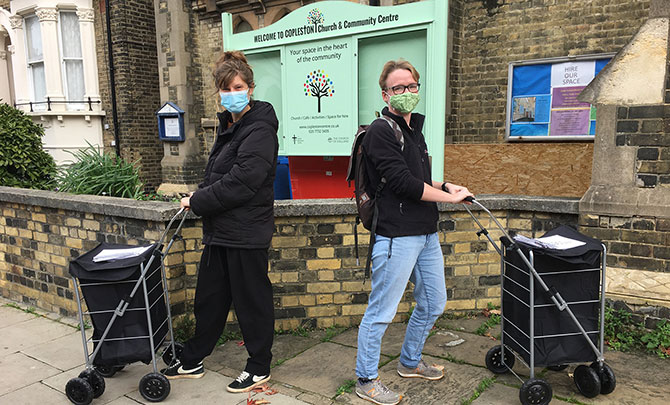Community stories: Jo Patterson - Reform Magazine
Continuing a series hearing from Church-Related Community Workers, Jo Patterson tells the story of integrating a church and community centre in Peckham, London
I had been going to the United Reformed Church in Orpington, Kent, for 13 years when somebody gave me a leaflet for a vocations fair. I was doing all sorts of bits in the church – the toddler group, Guides – and people kept asking me to do things in services. I kept saying: ‘No, ministry isn’t really for me.’ Ignoring God, as you do. I just wasn’t interested in ordained ministry.
A friend drove me to the vocations fair, and I had a spare section on my form for another session. I saw there was one on church-related community work and I thought: I don’t know what that means but I used to work in the community. I’ve got 20 minutes, I’ll just pop along. It was a huge lightbulb moment. I realised: This is why I don’t want to be a minister – because I want to do this instead.
What struck me is that, in church-related community work, social and political justice and equality can all have a place of ministry. I was brought up in a very conservative village church, where men ruled the world, and I was forever arguing with the vicar about women being given the same opportunities. I thought there was a disconnect between the ordained ministry and being able to be radical and outspoken – because you have to be sensitive to the congregation in your preaching and how you manage the church. I felt that if I did that, part of me would be taken away.
Working in the 1980s and 90s in a residential project with people leaving long-term institutional care, I helped people to understand what their needs were, rather than trying to fit them into what was being offered. That’s the root of community development work for me: it comes from the people who live in the community, not the people who are leading them…
Jo Patterson is a Church-Related Community Worker at the Coplestone Centre, Peckham, London. She was talking to Stephen Tomkins
___
This is an extract from an article published in the February 2021 edition of Reform















Submit a Comment